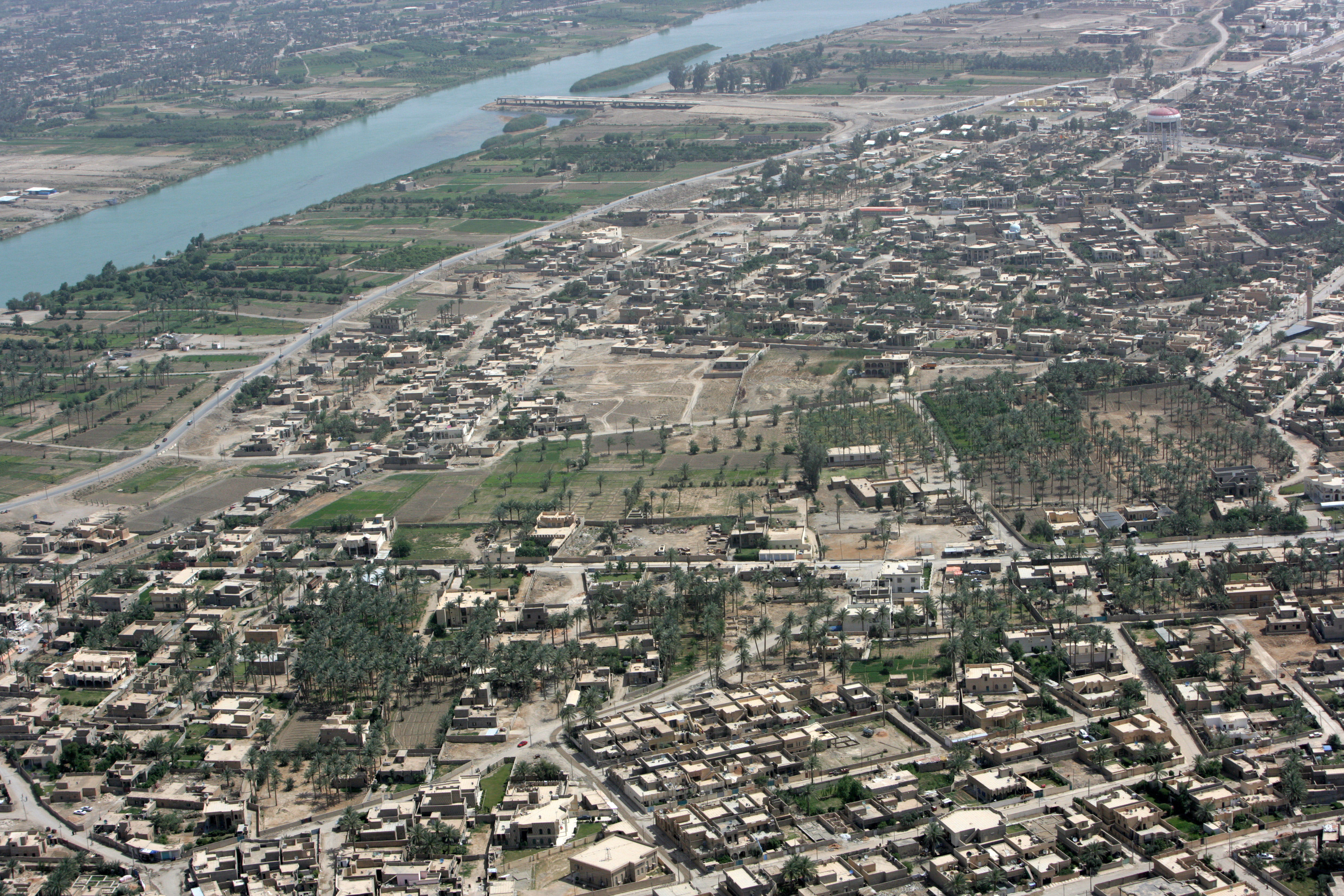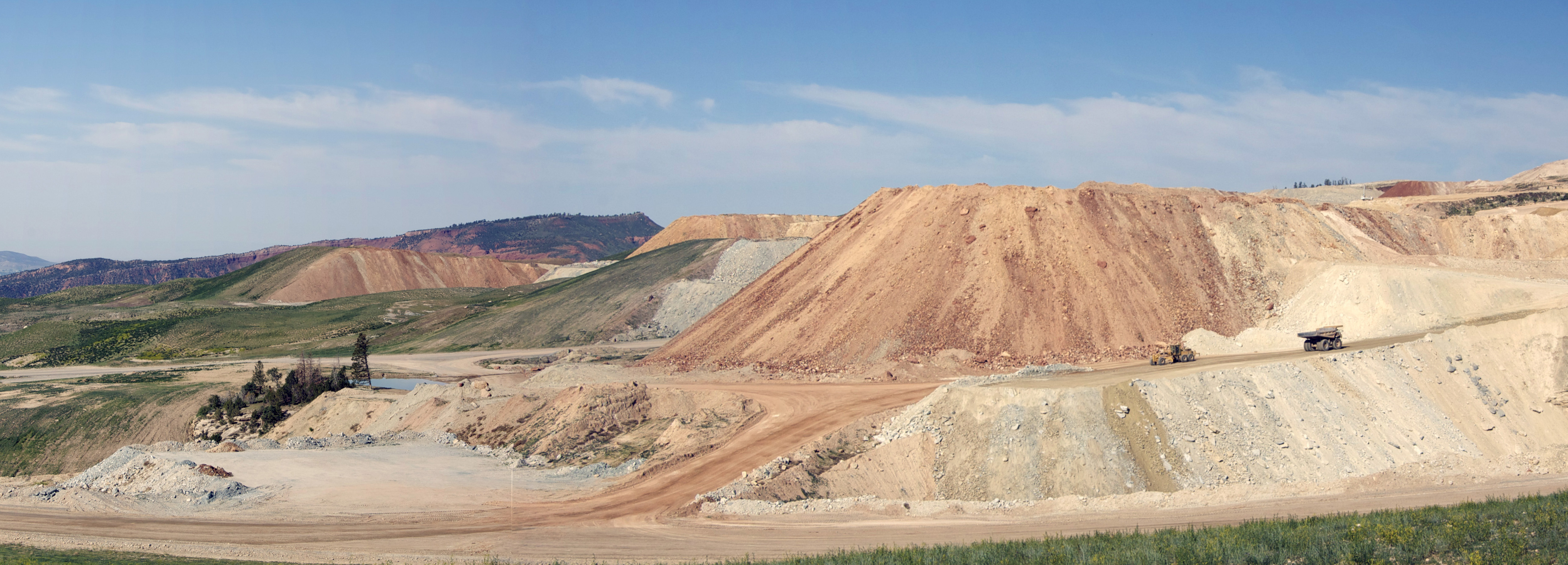|
Akashat
Akashat ( ar, عكاشات) is a small town in the northwest of the Ar-Rutba District of the Al Anbar province of Iraq, on the road between the towns of Ar-Rutbah and Al-Qa'im. It has a population of around 5,000. It was built as an industrial village in 1985, attached to the local phosphate quarry and administered by the ministry of industry. The Phosphate Plant in the town employs roughly 50-60 permanent workers. Production there was seriously disrupted by the UN sanctions after 1991 and the 2003 war, essentially stopped it from working. It is now operating at around 10%. Transport It is the terminus of a branchline of the national railway system. It serves a phosphate mine. The railroad tracks stretch all the way east to Hadithah where they connect in the south to the Persian Gulf and northward eventually to Europe. The phosphate quarry sporadically sends a trainload of raw material to Al Qaim. Uranium production The Akashat Mine, located 420 km west of Baghdad ... [...More Info...] [...Related Items...] OR: [Wikipedia] [Google] [Baidu] |
Akashat Ambush
The Akashat ambush was a well planned assault against an unarmed Syrian Army convoy defended by Iraqi soldiers that took place on 4 March 2013, as the group was travelling in the province of Anbar, next to the border with Syria. The Islamic State of Iraq claimed responsibility for the ambush on 11 March 2013. Prelude On 1 March 2013, according to the Syrian officer who was in charge of the Yaarubiyeh border crossing, north of the Iraqi border, reported a man identifying himself as the leader of one faction in the Islamist rebel coalition called him that day demanding that he and his men surrender. He refused and the poorly defended border outpost, which only had 70 soldiers despite being one of the three main ones along the Syrian–Iraqi border, came under intense attack resulting in the deaths of six of his men. He said this forced him and the remaining men to the Iraqi Rabiya border crossing. The group of 64 were detained by Iraqi authorities and transported to Baghdad, wher ... [...More Info...] [...Related Items...] OR: [Wikipedia] [Google] [Baidu] |
Al Anbar Governorate
Al Anbar Governorate ( ar, محافظة الأنبار; ''muḥāfaẓat al-’Anbār''), or Anbar Province, is the largest governorate in Iraq by area. Encompassing much of the country's western territory, it shares borders with Syria, Jordan, and Saudi Arabia. The population is mostly Sunni Muslims. The provincial capital is Ramadi; other important cities include Fallujah and Al-Qa'im. The governorate was known as Ramadi up to 1976 when it was renamed Al Anbar Province, and it was known as Dulaim before 1962. A large majority of the inhabitants of the province are Sunni Muslims and most belong to the Dulaim tribe, all of which speak Arabic. In early 2014, the Islamic State, with the assistance of some local Sunni militias, launched a successful campaign to seize control of the province from the Iraqi government. Numerous offensive actions were undertaken by the Iraqi government, with the assistance of local Sunni tribes to remove ISIL's occupation of the province, especial ... [...More Info...] [...Related Items...] OR: [Wikipedia] [Google] [Baidu] |
Ar-Rutba District
Ar-Rutba District ( ar, قضاء الرطبة) is the largest district by area in Al Anbar Governorate, Iraq, covering 93,445 km2, and the least populated in relative and absolute terms, with a population of 24,813 (estimate January 2003), or 0.27 per km2. It is also the southernmost district of Al Anbar Governorate, the westernmost of the whole country, and the only district nationwide bordering Jordan. It is centred on the town of Ar-Rutba. Cities * Al Waleed (Al Walid) * Ar-Rutbah * Nukhayb * Trebil * Akashat Akashat ( ar, عكاشات) is a small town in the northwest of the Ar-Rutba District of the Al Anbar province of Iraq, on the road between the towns of Ar-Rutbah and Al-Qa'im. It has a population of around 5,000. It was built as an industria ... * Al Habbariyah * Al Kasrah References Districts of Al Anbar Governorate {{Iraq-geo-stub ... [...More Info...] [...Related Items...] OR: [Wikipedia] [Google] [Baidu] |
Phosphate Plant In Akashat
In chemistry, a phosphate is an anion, salt, functional group or ester derived from a phosphoric acid. It most commonly means orthophosphate, a derivative of orthophosphoric acid . The phosphate or orthophosphate ion is derived from phosphoric acid by the removal of three protons . Removal of one or two protons gives the dihydrogen phosphate ion and the hydrogen phosphate ion ion, respectively. These names are also used for salts of those anions, such as ammonium dihydrogen phosphate and trisodium phosphate. File:3-phosphoric-acid-3D-balls.png, Phosphoricacid File:2-dihydrogenphosphate-3D-balls.png, Dihydrogenphosphate File:1-hydrogenphosphate-3D-balls.png, Hydrogenphosphate File:0-phosphate-3D-balls.png, Phosphate In organic chemistry, phosphate or orthophosphate is an organophosphate, an ester of orthophosphoric acid of the form where one or more hydrogen atoms are replaced by organic groups. An example is trimethyl phosphate, . The term also refers to the trivalen ... [...More Info...] [...Related Items...] OR: [Wikipedia] [Google] [Baidu] |
Al Anbar
Al Anbar Governorate ( ar, محافظة الأنبار; ''muḥāfaẓat al-’Anbār''), or Anbar Province, is the largest governorate in Iraq by area. Encompassing much of the country's western territory, it shares borders with Syria, Jordan, and Saudi Arabia. The population is mostly Sunni Muslims. The provincial capital is Ramadi; other important cities include Fallujah and Al-Qa'im. The governorate was known as Ramadi up to 1976 when it was renamed Al Anbar Province, and it was known as Dulaim before 1962. A large majority of the inhabitants of the province are Sunni Muslims and most belong to the Dulaim tribe, all of which speak Arabic. In early 2014, the Islamic State, with the assistance of some local Sunni militias, launched a successful campaign to seize control of the province from the Iraqi government. Numerous offensive actions were undertaken by the Iraqi government, with the assistance of local Sunni tribes to remove ISIL's occupation of the province, especially ... [...More Info...] [...Related Items...] OR: [Wikipedia] [Google] [Baidu] |
Al-Qa'im (town)
Al-Qa'im ( ar, القائم) is an Iraqi border town located nearly 400 km (248 mi) northwest of Baghdad near the Syrian border and situated along the Euphrates River, and located in the Al Anbar Governorate. It has a population of about 74,100 and it's the center of the Al-Qa'im District. The river water at Al-Qa'im carries less salt and mineral, so that it takes significantly less water to sustainably produce crops here than farther downstream, where more gallons of water must be used to avoid salinity. The Al-Qa'im border crossing connects Al-Qaim to close city Abu Kamal in Syria. Pre-war history In the early 20th century, there was a ''khan'' (caravanserai) and police station in Al-Qa'im, but no village. The ''khan'' was built in 1907 and was the residence of a local administrator. The surrounding area was inhabited by Arabs from the Karablah and Jara'if tribes. Al-Qa'im was reportedly the site of Iraq's refined uranium ore production from 1984 through 1990. The o ... [...More Info...] [...Related Items...] OR: [Wikipedia] [Google] [Baidu] |
Phosphate
In chemistry, a phosphate is an anion, salt, functional group or ester derived from a phosphoric acid. It most commonly means orthophosphate, a derivative of orthophosphoric acid . The phosphate or orthophosphate ion is derived from phosphoric acid by the removal of three protons . Removal of one or two protons gives the dihydrogen phosphate ion and the hydrogen phosphate ion ion, respectively. These names are also used for salts of those anions, such as ammonium dihydrogen phosphate and trisodium phosphate. File:3-phosphoric-acid-3D-balls.png, Phosphoricacid File:2-dihydrogenphosphate-3D-balls.png, Dihydrogenphosphate File:1-hydrogenphosphate-3D-balls.png, Hydrogenphosphate File:0-phosphate-3D-balls.png, Phosphate In organic chemistry, phosphate or orthophosphate is an organophosphate, an ester of orthophosphoric acid of the form where one or more hydrogen atoms are replaced by organic groups. An example is trimethyl phosphate, . The term also refers to the triv ... [...More Info...] [...Related Items...] OR: [Wikipedia] [Google] [Baidu] |
Iraqi Republic Railways
Iraqi Republic Railways Company (IRR; ar, الشركة العامة لسكك الحديد العراقية) is the national railway operator in Iraq. Network IRR comprises of . IRR has one international interchange, with Chemins de Fer Syriens (CFS) at Rabiya. The system runs from Rabiya southward through Mosul, Baiji, and Baghdad to Basra, with a branch line from Shouaiba Junction (near Basra) to the ports of Khor Az Zubair and Umm Qasr, westward from Baghdad through Ramadi and Haqlaniya to Al Qaim and Husayba, with a branch line from Al Qaim to Akashat, and east-west from Haqlaniya through Bayji to Kirkuk. History The first section of railway in what was then the Ottoman Empire province of Mesopotamia was a length of the Baghdad Railway between that city & Samarra opened in 1914. Work had started northwards from Baghdad with the aim of meeting the section being constructed across Turkey and Syria to Tel Kotchek and an extension northwards from Samarra to Baiji was ... [...More Info...] [...Related Items...] OR: [Wikipedia] [Google] [Baidu] |
Villiage Of Sikak In Akashat, Iraq
A village is a clustered human settlement or community, larger than a hamlet but smaller than a town (although the word is often used to describe both hamlets and smaller towns), with a population typically ranging from a few hundred to a few thousand. Though villages are often located in rural areas, the term urban village is also applied to certain urban neighborhoods. Villages are normally permanent, with fixed dwellings; however, transient villages can occur. Further, the dwellings of a village are fairly close to one another, not scattered broadly over the landscape, as a dispersed settlement. In the past, villages were a usual form of community for societies that practice subsistence agriculture, and also for some non-agricultural societies. In Great Britain, a hamlet earned the right to be called a village when it built a church. [...More Info...] [...Related Items...] OR: [Wikipedia] [Google] [Baidu] |
Railroad Tracks Akashat Iraq
Rail transport (also known as train transport) is a means of transport that transfers passengers and goods on wheeled vehicles running on rails, which are incorporated in tracks. In contrast to road transport, where the vehicles run on a prepared flat surface, rail vehicles (rolling stock) are directionally guided by the tracks on which they run. Tracks usually consist of steel rails, installed on sleepers (ties) set in ballast, on which the rolling stock, usually fitted with metal wheels, moves. Other variations are also possible, such as "slab track", in which the rails are fastened to a concrete foundation resting on a prepared subsurface. Rolling stock in a rail transport system generally encounters lower frictional resistance than rubber-tyred road vehicles, so passenger and freight cars (carriages and wagons) can be coupled into longer trains. The operation is carried out by a railway company, providing transport between train stations or freight customer facili ... [...More Info...] [...Related Items...] OR: [Wikipedia] [Google] [Baidu] |
Iraq
Iraq,; ku, عێراق, translit=Êraq officially the Republic of Iraq, '; ku, کۆماری عێراق, translit=Komarî Êraq is a country in Western Asia. It is bordered by Turkey to Iraq–Turkey border, the north, Iran to Iran–Iraq border, the east, the Persian Gulf and Kuwait to the southeast, Saudi Arabia to the south, Jordan to Iraq–Jordan border, the southwest and Syria to Iraq–Syria border, the west. The Capital city, capital and largest city is Baghdad. Iraq is home to diverse ethnic groups including Iraqi Arabs, Kurds, Iraqi Turkmen, Turkmens, Assyrian people, Assyrians, Armenians in Iraq, Armenians, Yazidis, Mandaeans, Iranians in Iraq, Persians and Shabaks, Shabakis with similarly diverse Geography of Iraq, geography and Wildlife of Iraq, wildlife. The vast majority of the country's 44 million residents are Muslims – the notable other faiths are Christianity in Iraq, Christianity, Yazidism, Mandaeism, Yarsanism and Zoroastrianism. The official langu ... [...More Info...] [...Related Items...] OR: [Wikipedia] [Google] [Baidu] |




